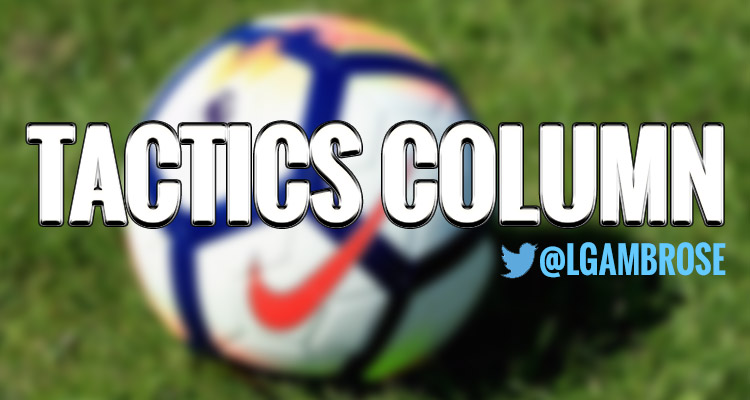
We have a week of distance from that debacle at Anfield, the melee of the transfer window is slowly beginning to fade into the distance and the end of the first intrusive international break of the season is almost upon us. With all that in mind, it seems to be a good time to look over the start to the season and assess what the hell was up with Arsenal.
Ah yes, Arsenal. You’d allowed yourself to forget for a second, hadn’t you? Sorry but Arsenal are not finished yet, the season is only just underway and a trip to Stamford Bridge is just around the corner. Triggered yet? Good. Now you have something in common with Granit Xhaka.
There has not been much to enjoy from Arsenal’s first few performances of the new season. There’s been plenty wrong with each of those performances and Xhaka has, unfortunately, stuck out badly. That, along with the stat below, is what I decided to have a look at.
Arsenal seem to have found a new way to frustrate us: conceding immediately after giving the ball away. It’s no news that counter-attacks are dangerous and Arsenal being susceptible to them is certainly not something alien to us. It is, however, something the back three (or five) was supposed to help us manage a bit better.
“They leave [Shkodran] Mustafi and Gabriel really exposed. Monreal and Bellerin play like right and left wingers. The wingers come inside with the centre forward, and [the centre backs] are just left on their own. So if you can get at them you can get into the box and make chances,” said Sam Allardyce after Crystal Palace humiliated us in March. That was the last time Arsenal started a game with four at the back.
With the new formation, Arsenal have three defenders back at all times but it isn’t enough of a solution. It isn’t about numbers, rather about space and how Arsenal are playing with possession of the ball. Over and over again Aaron Ramsey’s positioning is highlighted but it’s a (seemingly outdated) ploy from Arsene Wenger, an attempt to draw opposition sides out before sucker-punching them.
The problem here is teams have become much more savvy in recent years. Sides are better at pressing, they’re better at pouncing on mistakes, and they’re better at exploiting spaces. I say exploiting because you don’t even have to worry about creating the space, Arsenal’s unorthodox approach in possession does that for you.
Just to prove Ramsey’s positioning doesn’t have to be so destined to fail, here’s an example from the Stoke game where Arsenal actually created a great chance after initially losing the ball. Ramsey (circled) has made a ‘risky’ run but Danny Welbeck and Alexandre Lacazette are deeper than one would expect. The pair, along with Hector Bellerin, instantly press a lose ball and recover possession before releasing the dangerously-positioned Ramsey. We almost scored.

Now look at the difference when Arsenal played a long ball from deeper at Anfield. Arsenal are playing from left to right and there’s a decent chance Alberto Moreno will win the header. For some reason, though, nobody is standing where that ball would land.

Look how close Liverpool’s midfield and back-line are to each other, just in case the ball lands between them. Then contrast it to the gaping chasm between Arsenal’s defence and midfield, if you can call it that. Of course, the ball landed exactly where you think. From a goal kick Arsenal are instantly defending a dangerous attack because the gap between the defence and midfield is absolutely monstrous.
Seriously, you could park 2010 Sol Campbell’s backside in there. Twice.

If the Arsenal midfield is going to be so spread out, the very least the back-line has to do is get as high up the field as possible and squeeze the space. If they don’t trust themselves to deal with the pace and movement of Liverpool that way, abandon all plans to press the opposition.
The issues with the pressing (and there are oh so many) are for another day and I don’t want to waste too much time here when I think Arsenal will almost certainly abandon the back three in the near future anyway. Instead, it seems like a good time to around this off by turning attention to Granit Xhaka and an obvious weakness in his game.
I should say this firstly: I think Xhaka is a very accomplished footballer. An excellent passer and a much better defender than he given credit for. It’s generally enjoyable watching him play football for my club. He’s very good at the base of midfield … until he loses the ball. When Arsenal give the ball away and have to transition, Granit Xhaka is terrible and his flaws are exacerbated by the way the team plays.
For anyone who doesn’t know what I mean by transition, here’s a handy outline showing the four phases of a football match.
⁃ You don’t have possession of the ball
⁃ You win the ball (and transition from defence to attack)
⁃ You have possession of the ball
⁃ You lose the ball (and transition from attack to defence)
It’s that last one, transitioning from attack to defence, where Arsenal are really bad. Grant Xhaka is particularly bad, especially when he’s the player who loses the ball.
So, Arsenal have conceded three times immediately after Xhaka has given the ball away this season. Let’s look at the incident against Stoke City. Xhaka lost the ball with an overhit pass from the halfway line. This should not be a big deal at all.


Arsenal are pretty comfortable, actually. The entire back five is behind the ball, so is Xhaka. Mesut Ozil is too but the ball will come past him as he’s off balance, that’s no big deal. Xhaka is right in front of that defence and as long as he stays right there we can’t really be exploi…..WHERE ARE YOU GOING GRANIT?!
One simple pass beyond the onrushing Swiss and Stoke are bearing down on our entire defence with half a pitch to make clever runs into and pull a makeshift back three every which way they like.


That is, of course, exactly what happened. Two Stoke midfielders were suddenly in behind Xhaka and running at the back-line because he had an inexplicable rush of blood to the head. This gap between defence and midfield, this is where Arsenal are so weak, and it’s so easy to get there because it’s bloody massive.
The very same gap was seen in pre-season too, and not only when Ramsey was on the pitch. A completely flat pairing is just as bad, drawing individual defenders into uncomfortable compromised positions between the lines. It’s something Laurent Koscielny and Nacho Monreal are (fortunately) excellent at but even in moments we thankfully forget, moments of improvisation serve to excuse Arsenal’s shoddy defensive organisation.


For some reason, Xhaka is constantly involved in these situations. He can’t help himself. Instead of pushing a player wide, defending by backing off and slowing up the play while team-mates chase back, he dives in. It works sometimes – sure it does – but others it is completely costly and his position is not one where high risk/high reward is the order of the day.

Not only do these moments of madness expose the defence, but they can go horribly wrong and see Xhaka punished by the referee. We’ve certainly seen that.
I am genuinely unsure whether it’s panic or a lack of understanding, but the midfielder’s tendency to bust a gut every time he loses the ball sees him either easily passed or sent off pretty much every week. Chris Foy doesn’t need an invitation to send you off, stop giving him one.

The worst part of all this is I really like Granit Xhaka. I think he’s excellent, certainly as a passer of the ball. He’s also a very good defender when Arsenal are sitting deep. With more time to think he fills up spaces excellently, blocks passing lanes and sniffs out danger. Unfortunately, Arsenal keep trying to defend on the front foot. It’s something the team struggles with and Xhaka is the most guilty, as well as being the player asked to do the most as he is the one exposed by those around him on the ball.
Due to the nature of Xhaka’s position and the way Arsene Wenger has everyone else abandoning him on the ball, this doesn’t look like a problem that will go away any time soon. Maybe a return to the back four will see a more restrained midfield partnership with Aaron Ramsey (or whoever else Xhaka is paired with) in future.
For the time being, though, we’ll just have to hope the team spots the issues among themselves and plays in a tighter shape. Brilliant improvisation and the reliance on it will remain the saviour and downfall of Arsenal for a little while yet.
The post
Tactics Column: Xhaka and Arsenal’s separate flaws a recipe for disaster appeared first on
Arseblog ... an Arsenal blog.
 A week ago this piece would have looked very different. A week ago, Arsenal had just beaten Cologne after switching to a back four at half-time and were widely expected to meekly lose to Chelsea at Stamford Bridge.
Another defeat like the one at Anfield a few weeks ago would have almost certainly seen Arsene Wenger revert to type, banishing the back three formation he never really believed in anyway and returning to the tried and tested 4-2-3-1 on a more permanent basis.
Contrary to all expectations, an Arsenal side bereft of Alexis Sanchez and Mesut Ozil put in a brilliant performance, stifling Chelsea for the most part and threatening enough (at least in the first half) to deserve a point at the very least. Suddenly, from the brink, the 3-4-3 definitely has a place.
That should probably be the root of some optimism but also concern; it feels a lot like Arsenal will continue to blindly stumble around in a particular constellation until that goes so badly so many times in a row there is little option but to change again. Repeat ad nauseam.
While the 3-4-3 has its place, it should just be one way the team can play and it is – as we’ve seen – much better suited to games against big sides (like Chelsea in our last three meetings), and games against teams who line up in a similar fashion (like Bournemouth).
This weekend’s fixture against West Brom is the perfect time to show Arsenal can adapt and be flexible according to the available squad and the needs of any given game.
Barring two (if memory serves) drubbings right at the end of the season (2009 and 2015), home matches against Tony Pulis have always looked the same: Arsenal dominate but hardly create, Arsenal eventually score a half chance and the game ends 1-0 or 2-0 in relative comfort.
It’s not usually pretty but this is a tricky fixture and one we’ve never failed to win. It’s actually true of Arsenal across the board in these ‘simpler’ matches that the team doesn’t disappoint: the rate at which we’ve picked up points in home games we ‘should’ win is on par with all our competitive rivals at the top of the table. If it ain’t broke, don’t fix it.
The squad situation also does a lot for the argument we should return to playing four defenders when it’s most suitable. Games are now coming thick and fast and there needs to be some rotation at left-back: as things stand, both Nacho Monreal and Sead Kolasinac will play almost every single game.
Monreal is the first choice left centre-back as well as being the back-up left wing-back, the opposite applies to our lovable Bosnian brute. With the Europa League coming up in midweek, more League cup games on the horizon and two international breaks before December, the pair will each have to miss some matches.
Then there’s Danny Welbeck. After pre-season I touched on how important he was for the front three in pressing. Since then, his performances have impressed and his influence has grown. Playing on the right of the front three, Welbeck ties up at least one defender by driving forward and becoming a second striker. Occupying defenders allows him to team up with Lacazette so the duo can either spark moves or create space for one another. See the opening two goals against Bournemouth as an example.
It goes without saying that Alexis Sanchez is a fine player but, as we saw in recent fixtures, he can drop extremely deep for the ball. With Alex Iwobi or Mesut Ozil doing the same on the opposite side, Arsenal quickly lack enough players occupying the opposition high up the pitch (interestingly, this is why it is probably best for Theo Walcott to play on the opposite side from Alexis, a tactic which looked like Arsenal’s only viable route to goal against Doncaster in midweek).
With Alexis and Ozil both expected to return to the side, Arsenal will need all the numbers they can get in dangerous areas against a stubborn West Brom defence. That could be the case in the 3-4-3 but not the way Arsenal play it with both Alexis and Ozil, who drop deep and leave an onus on Ramsey to drive at the opposition backline.
Wenger has quickly changed during games where Arsenal are stifled and appears to be becoming increasingly impatient. Last season the boss switched back to 4-2-3-1 in minutes 68 (Leicester) and 69 (Sunderland). We saw the same pattern in the opening two games of this season, with the change taking place in the 67th (Leicester) and 66th (Stoke) minutes.
Four games is no real sample size but the evidence to this point suggests the change in tactic is hit and miss; a roll of the dice rather than a piece of ingenuity. Thanks to @11tegen11, we can see the the changes made a difference against a tiring relegated Sunderland and to lesser degree against Leicester made a difference, with Arsenal creating chances more frequently.
A week ago this piece would have looked very different. A week ago, Arsenal had just beaten Cologne after switching to a back four at half-time and were widely expected to meekly lose to Chelsea at Stamford Bridge.
Another defeat like the one at Anfield a few weeks ago would have almost certainly seen Arsene Wenger revert to type, banishing the back three formation he never really believed in anyway and returning to the tried and tested 4-2-3-1 on a more permanent basis.
Contrary to all expectations, an Arsenal side bereft of Alexis Sanchez and Mesut Ozil put in a brilliant performance, stifling Chelsea for the most part and threatening enough (at least in the first half) to deserve a point at the very least. Suddenly, from the brink, the 3-4-3 definitely has a place.
That should probably be the root of some optimism but also concern; it feels a lot like Arsenal will continue to blindly stumble around in a particular constellation until that goes so badly so many times in a row there is little option but to change again. Repeat ad nauseam.
While the 3-4-3 has its place, it should just be one way the team can play and it is – as we’ve seen – much better suited to games against big sides (like Chelsea in our last three meetings), and games against teams who line up in a similar fashion (like Bournemouth).
This weekend’s fixture against West Brom is the perfect time to show Arsenal can adapt and be flexible according to the available squad and the needs of any given game.
Barring two (if memory serves) drubbings right at the end of the season (2009 and 2015), home matches against Tony Pulis have always looked the same: Arsenal dominate but hardly create, Arsenal eventually score a half chance and the game ends 1-0 or 2-0 in relative comfort.
It’s not usually pretty but this is a tricky fixture and one we’ve never failed to win. It’s actually true of Arsenal across the board in these ‘simpler’ matches that the team doesn’t disappoint: the rate at which we’ve picked up points in home games we ‘should’ win is on par with all our competitive rivals at the top of the table. If it ain’t broke, don’t fix it.
The squad situation also does a lot for the argument we should return to playing four defenders when it’s most suitable. Games are now coming thick and fast and there needs to be some rotation at left-back: as things stand, both Nacho Monreal and Sead Kolasinac will play almost every single game.
Monreal is the first choice left centre-back as well as being the back-up left wing-back, the opposite applies to our lovable Bosnian brute. With the Europa League coming up in midweek, more League cup games on the horizon and two international breaks before December, the pair will each have to miss some matches.
Then there’s Danny Welbeck. After pre-season I touched on how important he was for the front three in pressing. Since then, his performances have impressed and his influence has grown. Playing on the right of the front three, Welbeck ties up at least one defender by driving forward and becoming a second striker. Occupying defenders allows him to team up with Lacazette so the duo can either spark moves or create space for one another. See the opening two goals against Bournemouth as an example.
It goes without saying that Alexis Sanchez is a fine player but, as we saw in recent fixtures, he can drop extremely deep for the ball. With Alex Iwobi or Mesut Ozil doing the same on the opposite side, Arsenal quickly lack enough players occupying the opposition high up the pitch (interestingly, this is why it is probably best for Theo Walcott to play on the opposite side from Alexis, a tactic which looked like Arsenal’s only viable route to goal against Doncaster in midweek).
With Alexis and Ozil both expected to return to the side, Arsenal will need all the numbers they can get in dangerous areas against a stubborn West Brom defence. That could be the case in the 3-4-3 but not the way Arsenal play it with both Alexis and Ozil, who drop deep and leave an onus on Ramsey to drive at the opposition backline.
Wenger has quickly changed during games where Arsenal are stifled and appears to be becoming increasingly impatient. Last season the boss switched back to 4-2-3-1 in minutes 68 (Leicester) and 69 (Sunderland). We saw the same pattern in the opening two games of this season, with the change taking place in the 67th (Leicester) and 66th (Stoke) minutes.
Four games is no real sample size but the evidence to this point suggests the change in tactic is hit and miss; a roll of the dice rather than a piece of ingenuity. Thanks to @11tegen11, we can see the the changes made a difference against a tiring relegated Sunderland and to lesser degree against Leicester made a difference, with Arsenal creating chances more frequently.
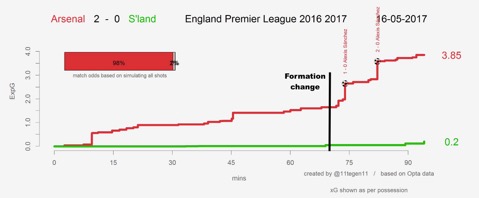
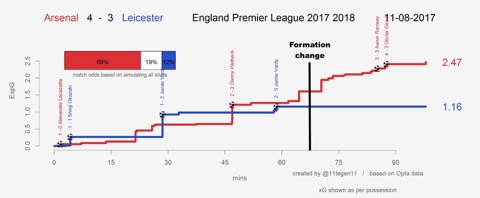 The same can’t be said of the games against Leicester (last season) and Stoke.
The same can’t be said of the games against Leicester (last season) and Stoke.
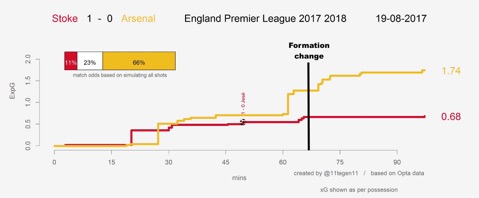
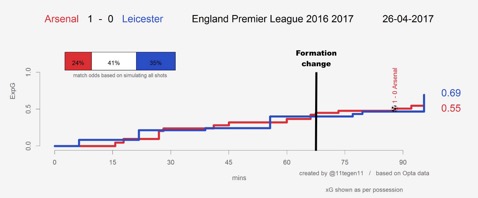 The situation against Cologne, calling upon Kolasinac at half-time, was completely new. It was the right call but a strange one – Arsenal had the players for this system on the pitch throughout the first half, why wait until half-time? It immediately paid off with Kolasinac scoring but the biggest difference came from Alex Iwobi. Finally Arsenal had a player getting between the defence and midfield, looking to increase the pace of the game and move forward quickly every time he got on the ball.
That’s what’s needed to break this sides down. Instead of wasting time with the 3-4-3 only to switch, Arsenal should start with a back four and go after West Brom with a little more verve and an extra player in dangerous areas, be that someone to make runs beyond Alexandre Lacazette or just to pick the ball up behind him.
A week after the game at Stamford Bridge was likely to put a nail in the back three’s coffin, it’s probably likely to be the game against West Brom that has Wenger cursing his luck and wondering if it’s the way to move forward. The truth is, of course, that Arsenal should move forward with the ability to play both systems.
Having two formations which suit the players is an incredible and long overdue string to Arsenal’s bow but it’s an obsolete one if we are only using it to become predictable in a different way. All the tools are there, now’s the time to use them. Be flexible and thrive.
The post Tactics column: A tale of two systems appeared first on Arseblog ... an Arsenal blog.
The situation against Cologne, calling upon Kolasinac at half-time, was completely new. It was the right call but a strange one – Arsenal had the players for this system on the pitch throughout the first half, why wait until half-time? It immediately paid off with Kolasinac scoring but the biggest difference came from Alex Iwobi. Finally Arsenal had a player getting between the defence and midfield, looking to increase the pace of the game and move forward quickly every time he got on the ball.
That’s what’s needed to break this sides down. Instead of wasting time with the 3-4-3 only to switch, Arsenal should start with a back four and go after West Brom with a little more verve and an extra player in dangerous areas, be that someone to make runs beyond Alexandre Lacazette or just to pick the ball up behind him.
A week after the game at Stamford Bridge was likely to put a nail in the back three’s coffin, it’s probably likely to be the game against West Brom that has Wenger cursing his luck and wondering if it’s the way to move forward. The truth is, of course, that Arsenal should move forward with the ability to play both systems.
Having two formations which suit the players is an incredible and long overdue string to Arsenal’s bow but it’s an obsolete one if we are only using it to become predictable in a different way. All the tools are there, now’s the time to use them. Be flexible and thrive.
The post Tactics column: A tale of two systems appeared first on Arseblog ... an Arsenal blog. 
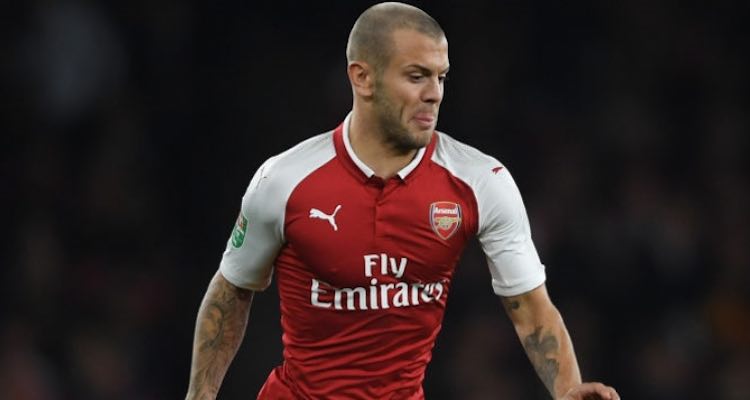
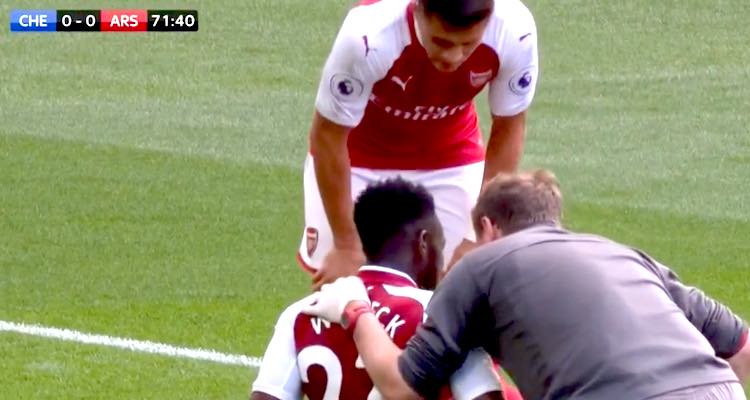 By any reasonable standards Arsenal’s start to the Premier League season has been relatively tricky. Away games at bogey team Stoke and at Liverpool, as well as a game at Stamford Bridge against the Champions. The two home fixtures were ones we were fully expected to win, and we did, but it was what we did on the road that was going to set the mood, so to speak.
In that regard, despite the difficulty of the games, to come away with just one point is disappointing, and after five games we sit in 12th, with 7 points, 6 points behind the leaders, and with a goal difference of -1. It is too early to get a real measure of the table, five games is such a small sample size, but it’s fair to say that the next month or so gives us a chance to correct that somewhat.
The next five Premier League fixtures are:
25.09.17 – West Brom (H)
01.10.17 – Brighton (H)
14.10.17 – Watford (A)
22.10.17 – Everton (A)
28.10.17 – Swansea (H)
N0t easy games, you can’t allow yourself to think like that, but easier games, and a real chance to get some points on the board. After that there’s an away trip to a currently rampant Manchester City, at which stage we’ll have another chance to see how well learned the lessons of Anfield were in terms of how we prepare and set up for it, and then a North London derby at home.
So it’s important to get some momentum going because we will need it. Don’t forget, there are other games sandwiched between those. Tomorrow we’ve got Chupacabra Cup action against Doncaster Rovers (more on that and the serious rotation we’ll see tomorrow), as well as three Europa League ties against Bate Borisov and Red Star Belgrade (twice). There’s plenty of football to get our teeth and feet into.
One man who most likely won’t be around for the next few weeks is Danny Welbeck, who is set to
By any reasonable standards Arsenal’s start to the Premier League season has been relatively tricky. Away games at bogey team Stoke and at Liverpool, as well as a game at Stamford Bridge against the Champions. The two home fixtures were ones we were fully expected to win, and we did, but it was what we did on the road that was going to set the mood, so to speak.
In that regard, despite the difficulty of the games, to come away with just one point is disappointing, and after five games we sit in 12th, with 7 points, 6 points behind the leaders, and with a goal difference of -1. It is too early to get a real measure of the table, five games is such a small sample size, but it’s fair to say that the next month or so gives us a chance to correct that somewhat.
The next five Premier League fixtures are:
25.09.17 – West Brom (H)
01.10.17 – Brighton (H)
14.10.17 – Watford (A)
22.10.17 – Everton (A)
28.10.17 – Swansea (H)
N0t easy games, you can’t allow yourself to think like that, but easier games, and a real chance to get some points on the board. After that there’s an away trip to a currently rampant Manchester City, at which stage we’ll have another chance to see how well learned the lessons of Anfield were in terms of how we prepare and set up for it, and then a North London derby at home.
So it’s important to get some momentum going because we will need it. Don’t forget, there are other games sandwiched between those. Tomorrow we’ve got Chupacabra Cup action against Doncaster Rovers (more on that and the serious rotation we’ll see tomorrow), as well as three Europa League ties against Bate Borisov and Red Star Belgrade (twice). There’s plenty of football to get our teeth and feet into.
One man who most likely won’t be around for the next few weeks is Danny Welbeck, who is set to 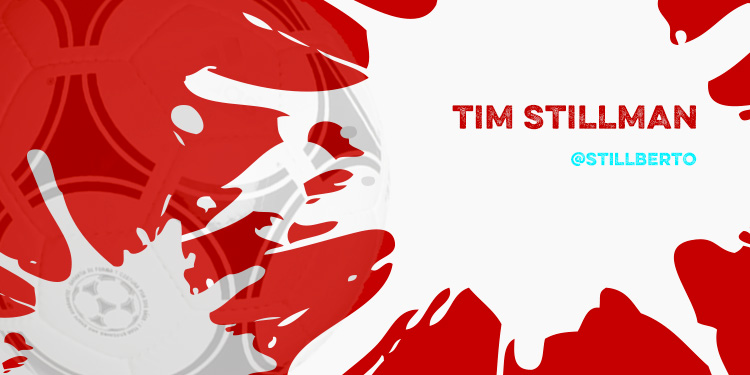 It’s been 5 months since Arsenal adopted the en vogue 3-4-2-1 formation, switching to three central defenders for the first time since the manager’s maiden season. Wenger was adamant during pre-season that the team would adopt this shape again for the outset of the current campaign and he used it for the duration of pre-season.
Still, it is difficult to be convinced that Arsene sees this as his long term formation. When he adopted it back in April,
It’s been 5 months since Arsenal adopted the en vogue 3-4-2-1 formation, switching to three central defenders for the first time since the manager’s maiden season. Wenger was adamant during pre-season that the team would adopt this shape again for the outset of the current campaign and he used it for the duration of pre-season.
Still, it is difficult to be convinced that Arsene sees this as his long term formation. When he adopted it back in April, 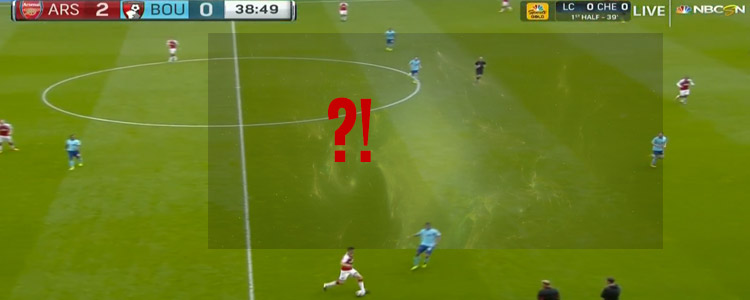
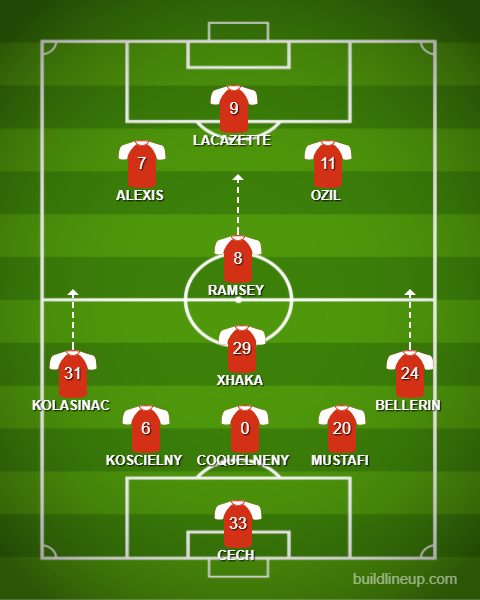
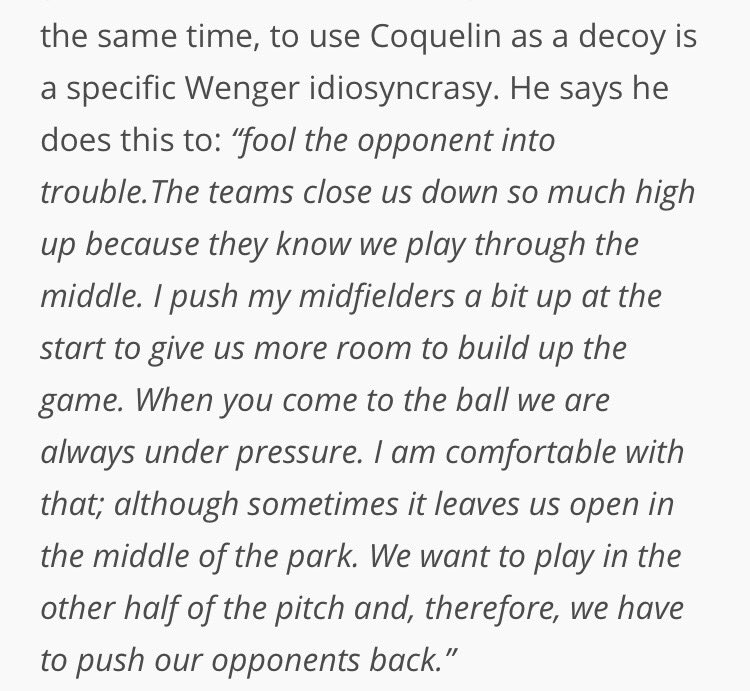
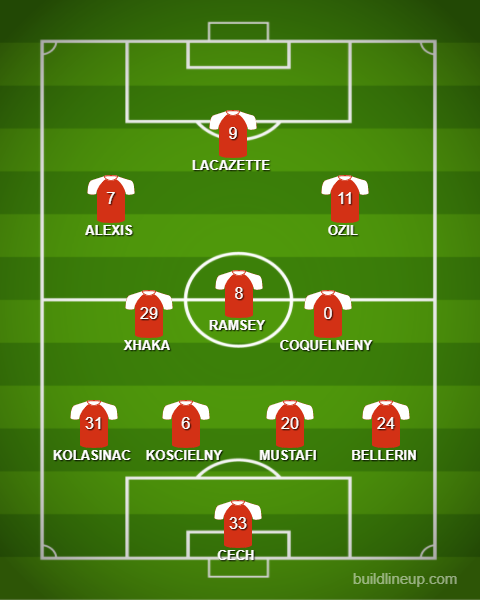
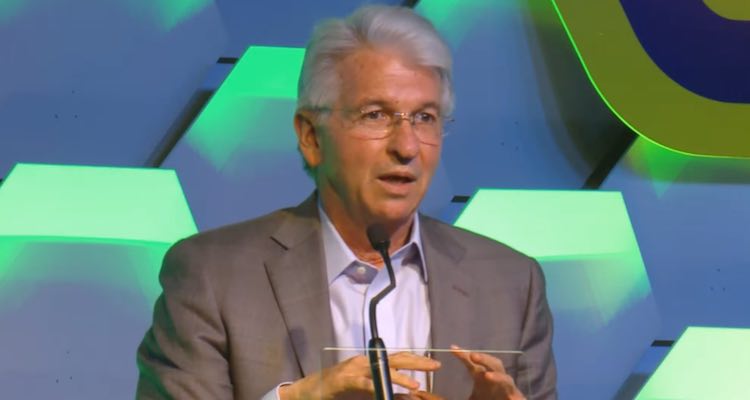 Last week it was reported that Arsenal’s chief transfer negotiator, Dick Law,
Last week it was reported that Arsenal’s chief transfer negotiator, Dick Law, 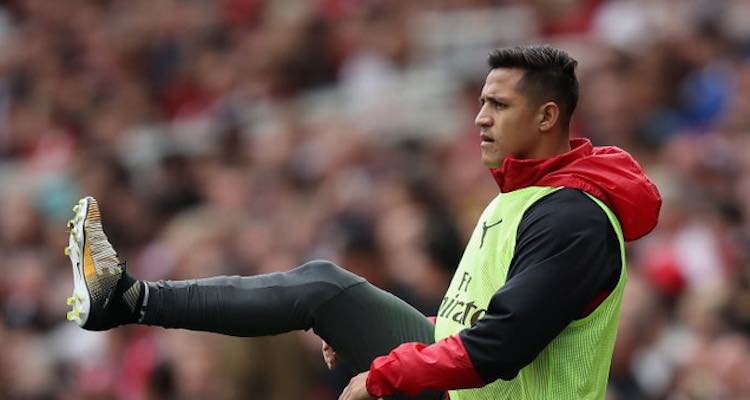 Over the course of the summer people have probably called Alexis Sanchez many things. There are some fans disgruntled at his desire to leave and I bet they called him names, like Alexis Gonechez, or Twatlexis Spamchez, or something equally creative.
But I bet none of them ever called him fat. That most classic of football insults. Even if you’re playing against a bloke who is rail thin, like an anorexic Peter Crouch, chances are someone will have a go at him during the game. ‘Shut up you fat prick’, they’ll say because there’s nothing a footballer at any level hates more than being called fat.
Some of them are able to compartmentalise it better than others. The Charlie Adams and Grant Holts of this world don’t like it but it doesn’t stop them from gorging themselves and growing large on Mr Kipling French Fancies, gelatinous pies and the like, and they continue to Pavarotti their way around a football pitch.
The evidence of their corpulence is obvious though, whereas it’s very difficult to understand why anyone would call Alexis Sanchez fat. At every possible opportunity he’s got his shirt off, displaying his rippling torso, his six pack, his glistening abs, engorged … well, you get the idea. He’s not fat, but his former U20 Chile coach called him that the other week when Chile were doing very badly in their World Cup qualifiers.
It’s patently not the case, yet Arsene Wenger appears to have been asked about it following the 3-0 win over Bournemouth on Saturday, and as you’d expect
Over the course of the summer people have probably called Alexis Sanchez many things. There are some fans disgruntled at his desire to leave and I bet they called him names, like Alexis Gonechez, or Twatlexis Spamchez, or something equally creative.
But I bet none of them ever called him fat. That most classic of football insults. Even if you’re playing against a bloke who is rail thin, like an anorexic Peter Crouch, chances are someone will have a go at him during the game. ‘Shut up you fat prick’, they’ll say because there’s nothing a footballer at any level hates more than being called fat.
Some of them are able to compartmentalise it better than others. The Charlie Adams and Grant Holts of this world don’t like it but it doesn’t stop them from gorging themselves and growing large on Mr Kipling French Fancies, gelatinous pies and the like, and they continue to Pavarotti their way around a football pitch.
The evidence of their corpulence is obvious though, whereas it’s very difficult to understand why anyone would call Alexis Sanchez fat. At every possible opportunity he’s got his shirt off, displaying his rippling torso, his six pack, his glistening abs, engorged … well, you get the idea. He’s not fat, but his former U20 Chile coach called him that the other week when Chile were doing very badly in their World Cup qualifiers.
It’s patently not the case, yet Arsene Wenger appears to have been asked about it following the 3-0 win over Bournemouth on Saturday, and as you’d expect 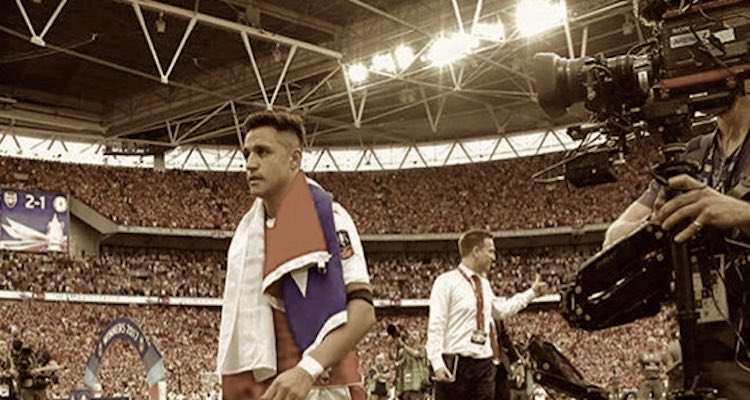 Morning all. That’s it, the Interlull is done and dusted, and we can get back to what’s important: figuring out how the hell to beat Bournemouth. More on that anon.
It looks as if everyone who was away on international duty will be coming back unscathed, there are no reports of any injuries at this point anyway, so that’s the first thing. Alexis Sanchez played for Chile as they lost 1-0 to Bolivia, putting their World Cup chances in real peril.
How ironic/annoying would it be that the one time he gets a summer off is the summer when he’s going to leave? He joined us off the back of the World Cup in 2014, did consecutive Copa America tournaments in 2015 and 2016, and this summer was away playing at the Confederations Crap. Ah well, that’s the way it goes, I guess.
By all accounts he played poorly, perhaps he’s not in the best frame of mind or still just finding his way back to match fitness, but you can be quite sure every bad pass, every grimace, every gesture will be analysed to the Nth degree this season, so that’s something we better get used to. He also hit out at criticism leveled at him (by the Chilean press I assume), in a post which said:
Morning all. That’s it, the Interlull is done and dusted, and we can get back to what’s important: figuring out how the hell to beat Bournemouth. More on that anon.
It looks as if everyone who was away on international duty will be coming back unscathed, there are no reports of any injuries at this point anyway, so that’s the first thing. Alexis Sanchez played for Chile as they lost 1-0 to Bolivia, putting their World Cup chances in real peril.
How ironic/annoying would it be that the one time he gets a summer off is the summer when he’s going to leave? He joined us off the back of the World Cup in 2014, did consecutive Copa America tournaments in 2015 and 2016, and this summer was away playing at the Confederations Crap. Ah well, that’s the way it goes, I guess.
By all accounts he played poorly, perhaps he’s not in the best frame of mind or still just finding his way back to match fitness, but you can be quite sure every bad pass, every grimace, every gesture will be analysed to the Nth degree this season, so that’s something we better get used to. He also hit out at criticism leveled at him (by the Chilean press I assume), in a post which said:
 I’m sure by now you’ve seen the contents of David Ornstein’s Tweet about Arsenal’s summer, what happened, and how it all went down. If not,
I’m sure by now you’ve seen the contents of David Ornstein’s Tweet about Arsenal’s summer, what happened, and how it all went down. If not,  Now look at the difference when Arsenal played a long ball from deeper at Anfield. Arsenal are playing from left to right and there’s a decent chance Alberto Moreno will win the header. For some reason, though, nobody is standing where that ball would land.
Now look at the difference when Arsenal played a long ball from deeper at Anfield. Arsenal are playing from left to right and there’s a decent chance Alberto Moreno will win the header. For some reason, though, nobody is standing where that ball would land.
 Look how close Liverpool’s midfield and back-line are to each other, just in case the ball lands between them. Then contrast it to the gaping chasm between Arsenal’s defence and midfield, if you can call it that. Of course, the ball landed exactly where you think. From a goal kick Arsenal are instantly defending a dangerous attack because the gap between the defence and midfield is absolutely monstrous.
Seriously, you could park 2010 Sol Campbell’s backside in there. Twice.
Look how close Liverpool’s midfield and back-line are to each other, just in case the ball lands between them. Then contrast it to the gaping chasm between Arsenal’s defence and midfield, if you can call it that. Of course, the ball landed exactly where you think. From a goal kick Arsenal are instantly defending a dangerous attack because the gap between the defence and midfield is absolutely monstrous.
Seriously, you could park 2010 Sol Campbell’s backside in there. Twice.
 If the Arsenal midfield is going to be so spread out, the very least the back-line has to do is get as high up the field as possible and squeeze the space. If they don’t trust themselves to deal with the pace and movement of Liverpool that way, abandon all plans to press the opposition.
The issues with the pressing (and there are oh so many) are for another day and I don’t want to waste too much time here when I think Arsenal will almost certainly abandon the back three in the near future anyway. Instead, it seems like a good time to around this off by turning attention to Granit Xhaka and an obvious weakness in his game.
I should say this firstly: I think Xhaka is a very accomplished footballer. An excellent passer and a much better defender than he given credit for. It’s generally enjoyable watching him play football for my club. He’s very good at the base of midfield … until he loses the ball. When Arsenal give the ball away and have to transition, Granit Xhaka is terrible and his flaws are exacerbated by the way the team plays.
For anyone who doesn’t know what I mean by transition, here’s a handy outline showing the four phases of a football match.
⁃ You don’t have possession of the ball
⁃ You win the ball (and transition from defence to attack)
⁃ You have possession of the ball
⁃ You lose the ball (and transition from attack to defence)
It’s that last one, transitioning from attack to defence, where Arsenal are really bad. Grant Xhaka is particularly bad, especially when he’s the player who loses the ball.
So, Arsenal have conceded three times immediately after Xhaka has given the ball away this season. Let’s look at the incident against Stoke City. Xhaka lost the ball with an overhit pass from the halfway line. This should not be a big deal at all.
If the Arsenal midfield is going to be so spread out, the very least the back-line has to do is get as high up the field as possible and squeeze the space. If they don’t trust themselves to deal with the pace and movement of Liverpool that way, abandon all plans to press the opposition.
The issues with the pressing (and there are oh so many) are for another day and I don’t want to waste too much time here when I think Arsenal will almost certainly abandon the back three in the near future anyway. Instead, it seems like a good time to around this off by turning attention to Granit Xhaka and an obvious weakness in his game.
I should say this firstly: I think Xhaka is a very accomplished footballer. An excellent passer and a much better defender than he given credit for. It’s generally enjoyable watching him play football for my club. He’s very good at the base of midfield … until he loses the ball. When Arsenal give the ball away and have to transition, Granit Xhaka is terrible and his flaws are exacerbated by the way the team plays.
For anyone who doesn’t know what I mean by transition, here’s a handy outline showing the four phases of a football match.
⁃ You don’t have possession of the ball
⁃ You win the ball (and transition from defence to attack)
⁃ You have possession of the ball
⁃ You lose the ball (and transition from attack to defence)
It’s that last one, transitioning from attack to defence, where Arsenal are really bad. Grant Xhaka is particularly bad, especially when he’s the player who loses the ball.
So, Arsenal have conceded three times immediately after Xhaka has given the ball away this season. Let’s look at the incident against Stoke City. Xhaka lost the ball with an overhit pass from the halfway line. This should not be a big deal at all.

 Arsenal are pretty comfortable, actually. The entire back five is behind the ball, so is Xhaka. Mesut Ozil is too but the ball will come past him as he’s off balance, that’s no big deal. Xhaka is right in front of that defence and as long as he stays right there we can’t really be exploi…..WHERE ARE YOU GOING GRANIT?!
One simple pass beyond the onrushing Swiss and Stoke are bearing down on our entire defence with half a pitch to make clever runs into and pull a makeshift back three every which way they like.
Arsenal are pretty comfortable, actually. The entire back five is behind the ball, so is Xhaka. Mesut Ozil is too but the ball will come past him as he’s off balance, that’s no big deal. Xhaka is right in front of that defence and as long as he stays right there we can’t really be exploi…..WHERE ARE YOU GOING GRANIT?!
One simple pass beyond the onrushing Swiss and Stoke are bearing down on our entire defence with half a pitch to make clever runs into and pull a makeshift back three every which way they like.

 That is, of course, exactly what happened. Two Stoke midfielders were suddenly in behind Xhaka and running at the back-line because he had an inexplicable rush of blood to the head. This gap between defence and midfield, this is where Arsenal are so weak, and it’s so easy to get there because it’s bloody massive.
The very same gap was seen in pre-season too, and not only when Ramsey was on the pitch. A completely flat pairing is just as bad, drawing individual defenders into uncomfortable compromised positions between the lines. It’s something Laurent Koscielny and Nacho Monreal are (fortunately) excellent at but even in moments we thankfully forget, moments of improvisation serve to excuse Arsenal’s shoddy defensive organisation.
That is, of course, exactly what happened. Two Stoke midfielders were suddenly in behind Xhaka and running at the back-line because he had an inexplicable rush of blood to the head. This gap between defence and midfield, this is where Arsenal are so weak, and it’s so easy to get there because it’s bloody massive.
The very same gap was seen in pre-season too, and not only when Ramsey was on the pitch. A completely flat pairing is just as bad, drawing individual defenders into uncomfortable compromised positions between the lines. It’s something Laurent Koscielny and Nacho Monreal are (fortunately) excellent at but even in moments we thankfully forget, moments of improvisation serve to excuse Arsenal’s shoddy defensive organisation.

 For some reason, Xhaka is constantly involved in these situations. He can’t help himself. Instead of pushing a player wide, defending by backing off and slowing up the play while team-mates chase back, he dives in. It works sometimes – sure it does – but others it is completely costly and his position is not one where high risk/high reward is the order of the day.
For some reason, Xhaka is constantly involved in these situations. He can’t help himself. Instead of pushing a player wide, defending by backing off and slowing up the play while team-mates chase back, he dives in. It works sometimes – sure it does – but others it is completely costly and his position is not one where high risk/high reward is the order of the day.
 Not only do these moments of madness expose the defence, but they can go horribly wrong and see Xhaka punished by the referee. We’ve certainly seen that.
I am genuinely unsure whether it’s panic or a lack of understanding, but the midfielder’s tendency to bust a gut every time he loses the ball sees him either easily passed or sent off pretty much every week. Chris Foy doesn’t need an invitation to send you off, stop giving him one.
Not only do these moments of madness expose the defence, but they can go horribly wrong and see Xhaka punished by the referee. We’ve certainly seen that.
I am genuinely unsure whether it’s panic or a lack of understanding, but the midfielder’s tendency to bust a gut every time he loses the ball sees him either easily passed or sent off pretty much every week. Chris Foy doesn’t need an invitation to send you off, stop giving him one.
 The worst part of all this is I really like Granit Xhaka. I think he’s excellent, certainly as a passer of the ball. He’s also a very good defender when Arsenal are sitting deep. With more time to think he fills up spaces excellently, blocks passing lanes and sniffs out danger. Unfortunately, Arsenal keep trying to defend on the front foot. It’s something the team struggles with and Xhaka is the most guilty, as well as being the player asked to do the most as he is the one exposed by those around him on the ball.
Due to the nature of Xhaka’s position and the way Arsene Wenger has everyone else abandoning him on the ball, this doesn’t look like a problem that will go away any time soon. Maybe a return to the back four will see a more restrained midfield partnership with Aaron Ramsey (or whoever else Xhaka is paired with) in future.
For the time being, though, we’ll just have to hope the team spots the issues among themselves and plays in a tighter shape. Brilliant improvisation and the reliance on it will remain the saviour and downfall of Arsenal for a little while yet.
The post
The worst part of all this is I really like Granit Xhaka. I think he’s excellent, certainly as a passer of the ball. He’s also a very good defender when Arsenal are sitting deep. With more time to think he fills up spaces excellently, blocks passing lanes and sniffs out danger. Unfortunately, Arsenal keep trying to defend on the front foot. It’s something the team struggles with and Xhaka is the most guilty, as well as being the player asked to do the most as he is the one exposed by those around him on the ball.
Due to the nature of Xhaka’s position and the way Arsene Wenger has everyone else abandoning him on the ball, this doesn’t look like a problem that will go away any time soon. Maybe a return to the back four will see a more restrained midfield partnership with Aaron Ramsey (or whoever else Xhaka is paired with) in future.
For the time being, though, we’ll just have to hope the team spots the issues among themselves and plays in a tighter shape. Brilliant improvisation and the reliance on it will remain the saviour and downfall of Arsenal for a little while yet.
The post 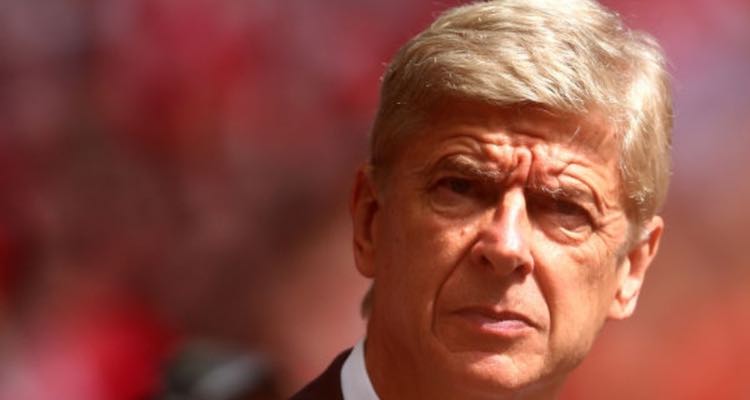 Morning, welcome to a new week, the Interlull is still upon us, but over the weekend Arsene Wenger provided some titbits in an interview with Telefoot.
He spoke about the bid for Thomas Lemar, confirmed we’d offered €100m and said we’d try again for him at some point in the future. Most interestingly though, he spoke about his decision to stay with the club, and revealed he’d had doubts. He said:
Morning, welcome to a new week, the Interlull is still upon us, but over the weekend Arsene Wenger provided some titbits in an interview with Telefoot.
He spoke about the bid for Thomas Lemar, confirmed we’d offered €100m and said we’d try again for him at some point in the future. Most interestingly though, he spoke about his decision to stay with the club, and revealed he’d had doubts. He said: